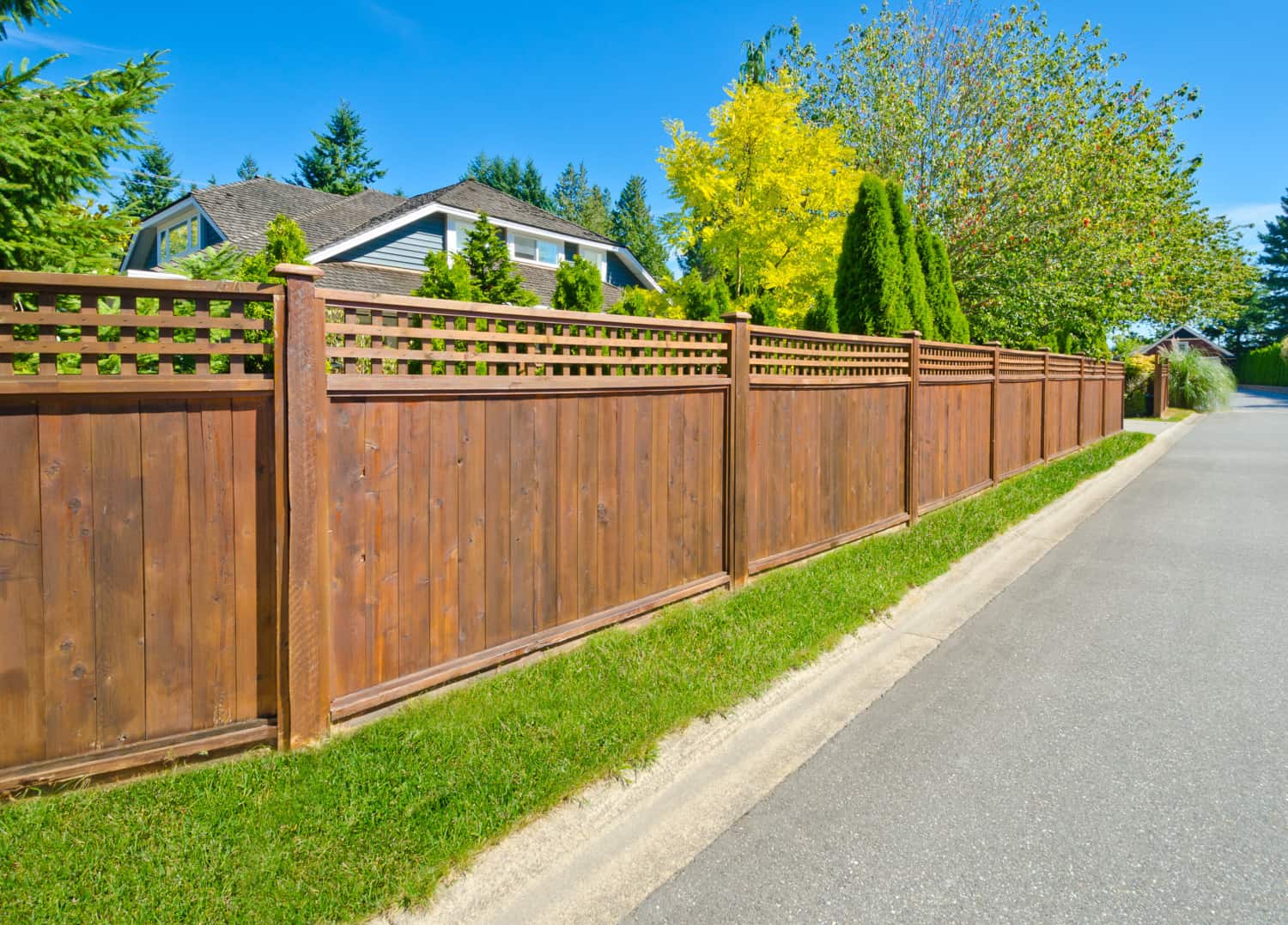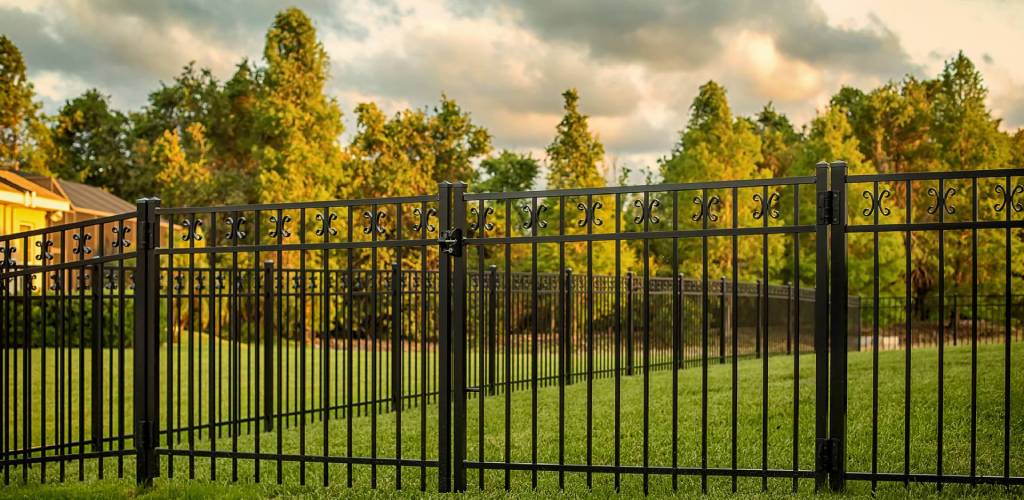All Categories
Featured

Choosing the best secure fencing product for your property is a decision that balances aesthetics, performance, and budget plan. Amongst the most preferred choices, timber, vinyl, and light weight aluminum each offer distinct benefits and drawbacks. Comprehending these can assist you make an informed choice that aligns with your requirements. Right here's a failure of the benefits and drawbacks of these three common fence products.
Wood Fencing. Timber fencing has actually been a timeless option for home owners as a result of its natural charm and versatility.
Pros:. Visual Allure: Wood supplies a cozy and timeless look that matches a selection of architectural styles. Customizable: It can be painted, discolored, or cut into unique styles to match individual choices. Cost-efficient: Initially, timber fence can be an economical alternative compared to other materials. Eco-Friendly: Timber is a renewable energy and can be sustainably sourced. Cons:. High Upkeep: Wood calls for normal sealing, discoloration, or painting to avoid rot, insect damage, and weathering. Sturdiness Concerns: Without appropriate treatment, timber can warp, split, or degeneration in time, particularly in locations with high moisture. Much shorter Lifespan: A timber fence commonly lasts 10-20 years, relying on the sort of timber and level of maintenance. Wood is optimal for those who value a conventional appearance and want to commit to its upkeep.
Vinyl Fence. Plastic is a modern-day, low-maintenance secure fencing option that has actually expanded in appeal in recent times.

Pros:. Low Maintenance: Plastic does not call for painting, staining, or sealing and can be conveniently cleaned up with soap and water. Weather Resistant: It endures extreme climate problems without deteriorating, rusting, or bending. Durable: Plastic fences can last 20-30 years with minimal maintenance. Selection of Styles: Available in numerous colors, styles, and appearances, some vinyl options simulate the look of wood. Cons:. Greater Upfront Cost: Plastic secure fencing can be extra expensive at first contrasted to wood. Brittleness in Winter: In extreme chilly, plastic might split or become brittle. Minimal Repairs: Individual panels can be tough to change, calling for cautious matching to the existing fencing. Vinyl is finest fit for property owners looking for a sturdy, low-maintenance solution with modern-day visual appeals.
Light Weight Aluminum Secure Fencing. Aluminum secure fencing is a sturdy and light-weight choice, typically picked for its modern appearance and adaptability.
Pros:. Rust-Resistant: Aluminum does not corrosion, making it an exceptional selection for humid or damp environments. Low Upkeep: Needs very little upkeep and is easy to tidy. Long lasting: While light-weight, light weight aluminum is solid enough to stand up to lots of environmental conditions. Long Life-span: Can last a number of years without considerable wear or wear and tear. Variety of Styles: Offers a sleek and sophisticated look, typically used for ornamental or decorative functions. Disadvantages:. Greater Expense: The first financial investment for light weight aluminum fence is more than timber or vinyl. Less Privacy: Aluminum fences are often designed with open pickets, making them less reliable for privacy. Susceptible to Damages: Although long lasting, aluminum can be nicked by solid impacts. Aluminum is perfect for those looking for an elegant, resilient choice that calls for very little treatment.
Making the Right Option. Each fencing material-- light weight aluminum, timber, and vinyl-- offers unique benefits and drawbacks. Your decision should depend on your details concerns, such as budget plan, maintenance preferences, climate, and aesthetic goals:
Choose timber if you enjoy a typical look and don't mind routine upkeep. Go with vinyl if you desire a low-maintenance, weather-resistant fence with contemporary charm. Opt for aluminum if you focus on resilience, corrosion resistance, and a sleek layout. By considering these pros and cons, you can select a fencing material that enhances your residential or commercial property while fulfilling your practical demands.
Latest Posts
Find Brake Repair & More: Full Repair Options from Montclare Auto Repair
Published May 27, 25
1 min read
Reasons Routine Vehicle Maintenance at Montclare Auto Repair Reduces Costs
Published May 27, 25
1 min read
Discover Oil Changes & More: Full Auto Care Solutions from Montclare Auto Repair
Published May 26, 25
1 min read
More
Latest Posts
Find Brake Repair & More: Full Repair Options from Montclare Auto Repair
Published May 27, 25
1 min read
Reasons Routine Vehicle Maintenance at Montclare Auto Repair Reduces Costs
Published May 27, 25
1 min read
Discover Oil Changes & More: Full Auto Care Solutions from Montclare Auto Repair
Published May 26, 25
1 min read